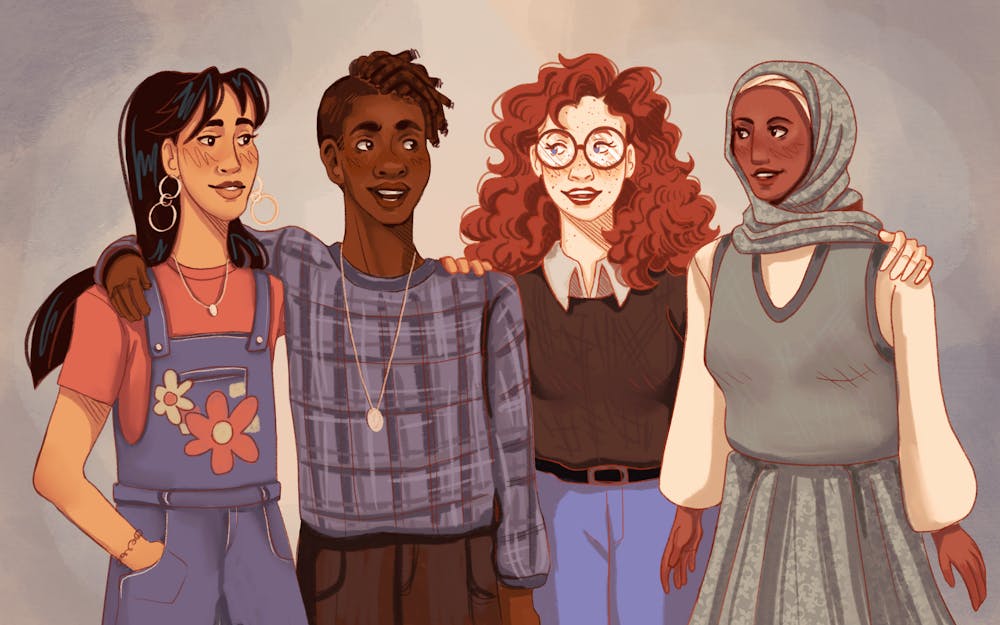“You’re learning Japanese? Is it because you like anime?”
I’ve had to deal with that statement for a long time. It was always the first thing anyone said to me when I told them I was learning Japanese on my own. They immediately assumed it was because I liked anime and was a “weeaboo,” and never once did they genuinely want to know why. In case you were wondering, it’s because I love Japanese culture and thought the language looked interesting.
When writing essays for college applications, there was the question: What global issue are you most passionate about? Whenever I saw that question, I had to think for a minute, because there are many issues out there that I could write about. But I always resorted to this one: cultural ignorance.
Unfortunately, cultural ignorance happens all the time. As a white person, I may not be the most qualified to speak about this issue, but I care deeply about other cultures, and I make the effort to learn about other countries and their traditions. I never like to be ignorant when it comes to this topic, and I get irritated whenever I see other people being culturally ignorant.
It baffles me how many people seemingly don’t care about learning and resort to stereotyping groups of people and regions immediately. One of my friends has told me about a situation from high school where she and her friend were out shopping, and because her friend was African American, one of the store employees was constantly watching her and making sure she didn’t steal anything. This is a prime example of a person immediately stereotyping and making someone feel hurt because of their assumptions. We literally have online access to everything imaginable, and yet people don’t even bother to use it to learn about other regions of the world.
This ignorance is most likely due to misinformation. I had to read a book over the summer for one of my classes, “Factfulness” by Hans Rosling, Ola Rosling and Anna Rosling Rönnlund. This book was really interesting because it opened my mind to how people view the world. Unfortunately, most of us view the world negatively, thinking that things are getting worse by the minute. I admit that I also viewed the world in the same way, thinking that everything was in a constant state of deterioration. I thought the population was only increasing and wouldn’t stop, leading to a rise in overconsumption and even less resources available. I thought that endangered species weren’t getting help and would die out forever. I thought that children weren’t getting vaccinated, leading to a spread in disease worldwide. But this book proved me wrong, and it gave me hope for the future.
Rosling believes that the media has a lot to do with people being globally misinformed. He states, “We are subjected to never-ending cascades of negative news from across the world…stories about gradual improvements rarely make the front page even when they occur on a dramatic scale and impact millions of people.”
This is how people resort to stereotypes. I’m not saying the media is wrong or false, because reporting on disastrous events is important. But because of this overflow of negative news, peoples’ views of the world are inaccurate, and they never hear about all the good things happening globally.
Another reason stereotyping may happen is due to what Rosling calls the “generalization instinct.” People tend to categorize things. It’s natural, but it can be a distorting way to view the world. He says, “(Generalizing) can make us assume everything or everyone in one category is similar. And, maybe most unfortunate of all, it can make us jump to conclusions about a whole category based on a few, or even just one, unusual example.”
An example of both points is when my French teacher in high school told my class about the cultural comparison portion of the Advanced Placement exam. She explained how, before going into the exam, we should get our facts straight about cultural differences between Francophone countries and the United States. She told us how an anonymous person, who previously took the exam, wrote, incorrectly, that African countries don’t have universities. My mouth flew open in shock when I heard this. But people genuinely think this is true. The incorrect assumption that Africa is, and will always be, a poor continent is a common stereotype. Because we regularly hear about instances of poverty in this region in media coverage, it leads to people generalizing the continent.
But, by doing a little research, you’ll find that African countries’ economies are performing tremendously well. According to the African Development Bank Group, the growth in total market value in Africa is expected to average 3.8% in 2024 and 4.2% in 2025, which is higher than the projected global averages of 2.9% and 3.2%. This continent is going to remain the second-fastest-growing region after Asia, which is incredible.
With that, I encourage you to be informed. Fact check. Avoid assumptions. Whenever my sister or I would ask our parents about something that could be researched, my dad would always say this phrase that I want you to remember: the internet is at your fingertips.
Evelyn Strauss (she/her) is a freshman studying international studies and human biology.






